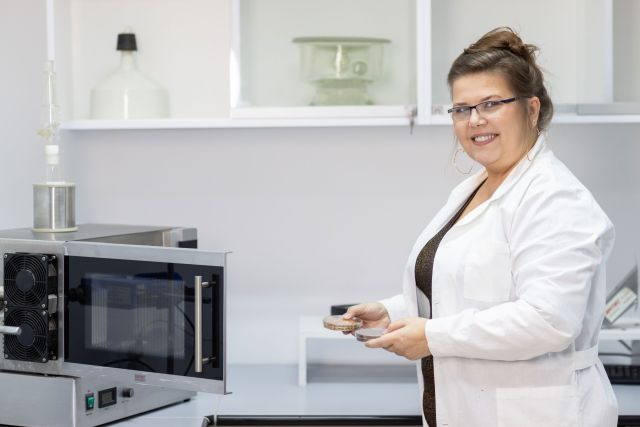Principal Investigator
:
Dr Marina Villanueva
Wroclaw University of Economics and Business
Panel: ST5
Funding scheme
: POLS
announced on
16 March 2020 r.
The chemical composition, structure and internal organisation of the building blocks of high-starch raw materials is reflected in the viscoelastic properties of the thin (paste) and thick (dough) suspensions formed from them. This characteristic is crucial in their further use in the formulation of food products, as it is responsible for the formation of specific food structures and textures, which are decisive quality differentiators in food products.
Coeliac disease and other gluten-dependent disease entities are associated with the consumption of allergenic glyandin proteins present in certain cereals (wheat, rye, barley) and responsible for triggering specific metabolic reactions directly or indirectly in people sensitive to their presence. The only solution for these people is to permanently eliminate these grains and their products from the diet.
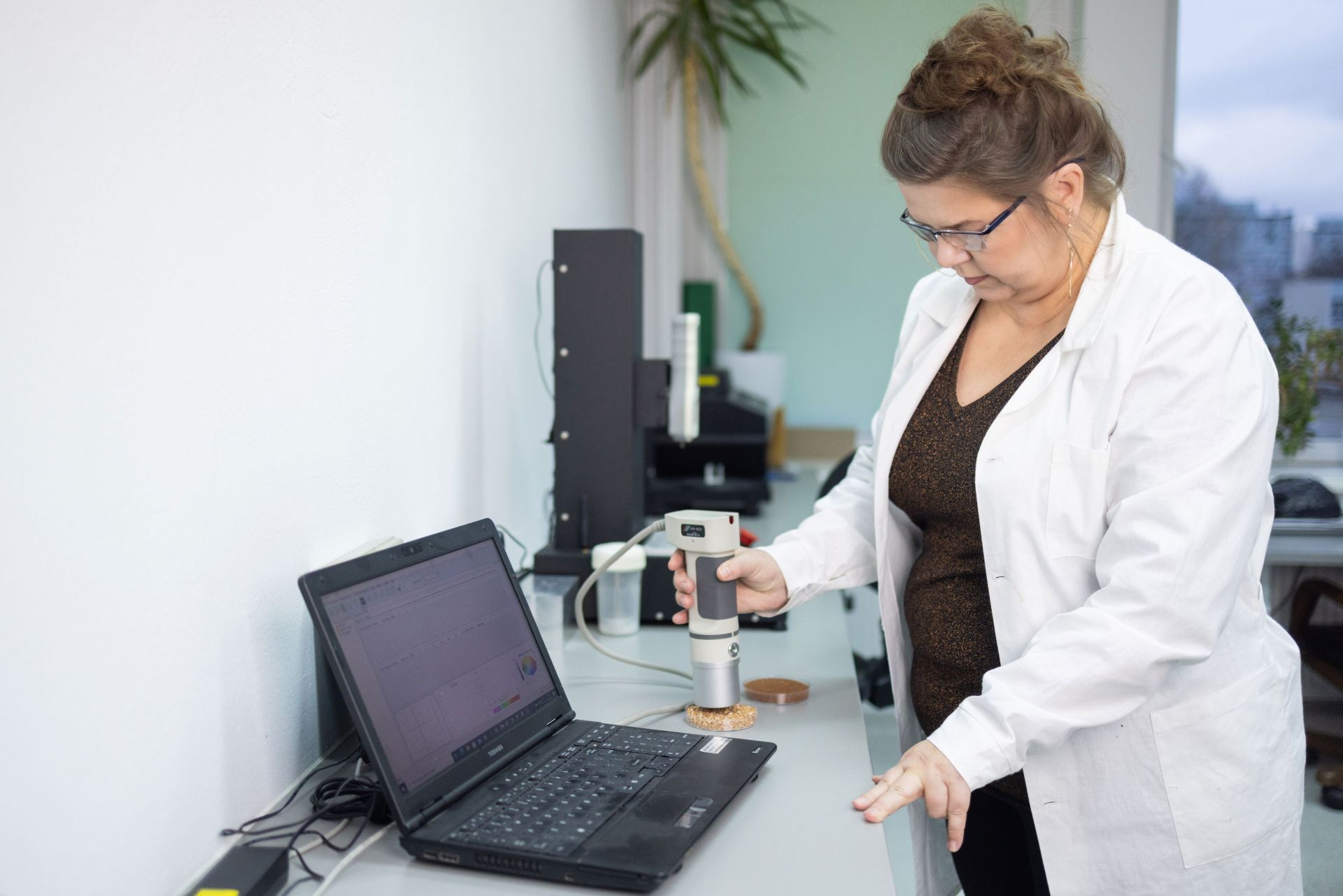 Prof. dr hab. Joanna Harasym, project executor, photo. Michał Łepecki
However, following a gluten-free diet is not an easy task, as gluten-containing grains, especially wheat, are the main ingredients in popular food products in Western culture, such as bread, pasta and sweet breads. Currently, the market for GF products is experiencing significant growth, mainly due to an increase in the number of diagnosed gluten-avoiding patients and the emergence of a new market niche for consumers who optionally avoid gluten.
Prof. dr hab. Joanna Harasym, project executor, photo. Michał Łepecki
However, following a gluten-free diet is not an easy task, as gluten-containing grains, especially wheat, are the main ingredients in popular food products in Western culture, such as bread, pasta and sweet breads. Currently, the market for GF products is experiencing significant growth, mainly due to an increase in the number of diagnosed gluten-avoiding patients and the emergence of a new market niche for consumers who optionally avoid gluten.
However, the use of cereal flours from grains other than wheat in baked goods presents technological challenges due to the lack of a structural network formed by the gluten protein complex. Obtaining viscoelastic properties similar to those of wheat doughs is a prerequisite for obtaining technologically relevant and sensorially acceptable baked goods from gluten-free recipes.
It is known that thermal treatment of flours causes changes in the conformation of proteins, enzyme activity, starch solubility and antioxidant activity of the raw material, all of which result in modified viscoelastic characteristics of glutens and doughs created from flours so produced.
In the project, we analysed the effect of hydrothermal treatment assisted by electromagnetic radiation (microwave radiation – 2.45 GHz) on the change in physicochemical properties of two gluten-free high-starch plant raw materials – buckwheat (Fagopyrum esculentum Moench) and abyssinian ginkgo (Eragrostis teff).
The overarching goal of the research project was to effectively modify the functional and physicochemical properties of naturally gluten-free flours. The key idea was to take advantage of the phenomena of modifying the quaternary and tertiary conformations of natural polymers at elevated temperatures. This made it possible to modulate the viscoelastic properties of the flour components with physical factors only, without the use of chemical compounds or structure-forming additives like vegetable gums. Microwave radiation at 2.45 GHz and water, in which the oscillation of dipoles generated heat directly at the point of occurrence rather than by convection, were used for efficient heat transport.
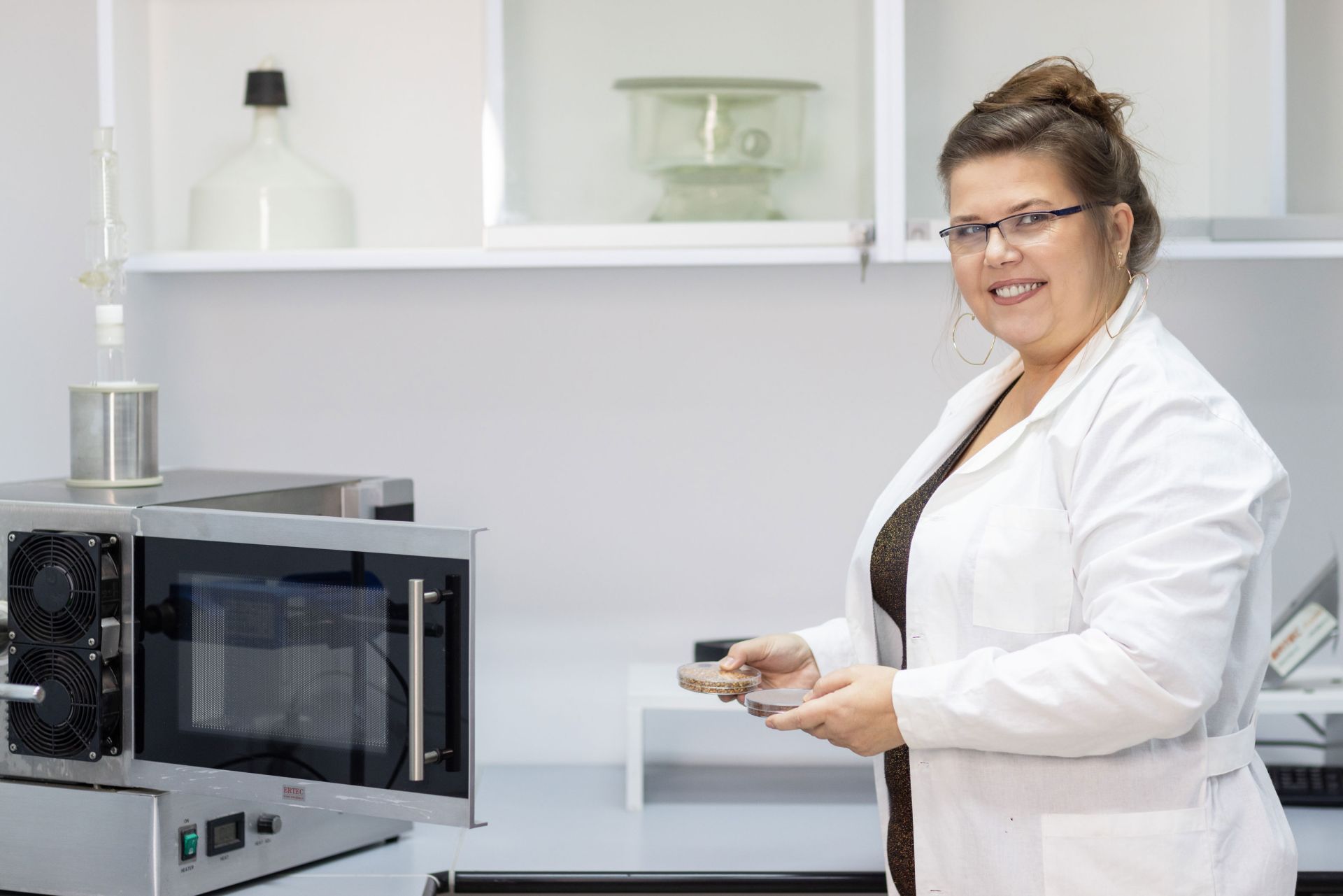 Prof. dr hab. Joanna Harasym, project executor, photo. Michał Łepecki
At the same time, it was important to preserve the nutritional values specific to the plant material used, especially those derived from polyphenolic substances and other antioxidants.
Prof. dr hab. Joanna Harasym, project executor, photo. Michał Łepecki
At the same time, it was important to preserve the nutritional values specific to the plant material used, especially those derived from polyphenolic substances and other antioxidants.
The experimental results obtained were published in several scientific articles of JCR-listed journals and presented at more than 5 international conferences. The project also enabled the building of a new platform of cooperation between young foreign researchers Dr Marina Villanueva and Dr Tetiana Lisovskaya, who successively served as the project manager. The results of the research have been presented at a number of international scientific conferences arousing interest and enabling the establishment of broad scientific cooperation.
Project title: Modification of high nutritional gluten-free flours by innovative heat-moisture treatment for the development of improved bakery products
Dr Marina Villanueva
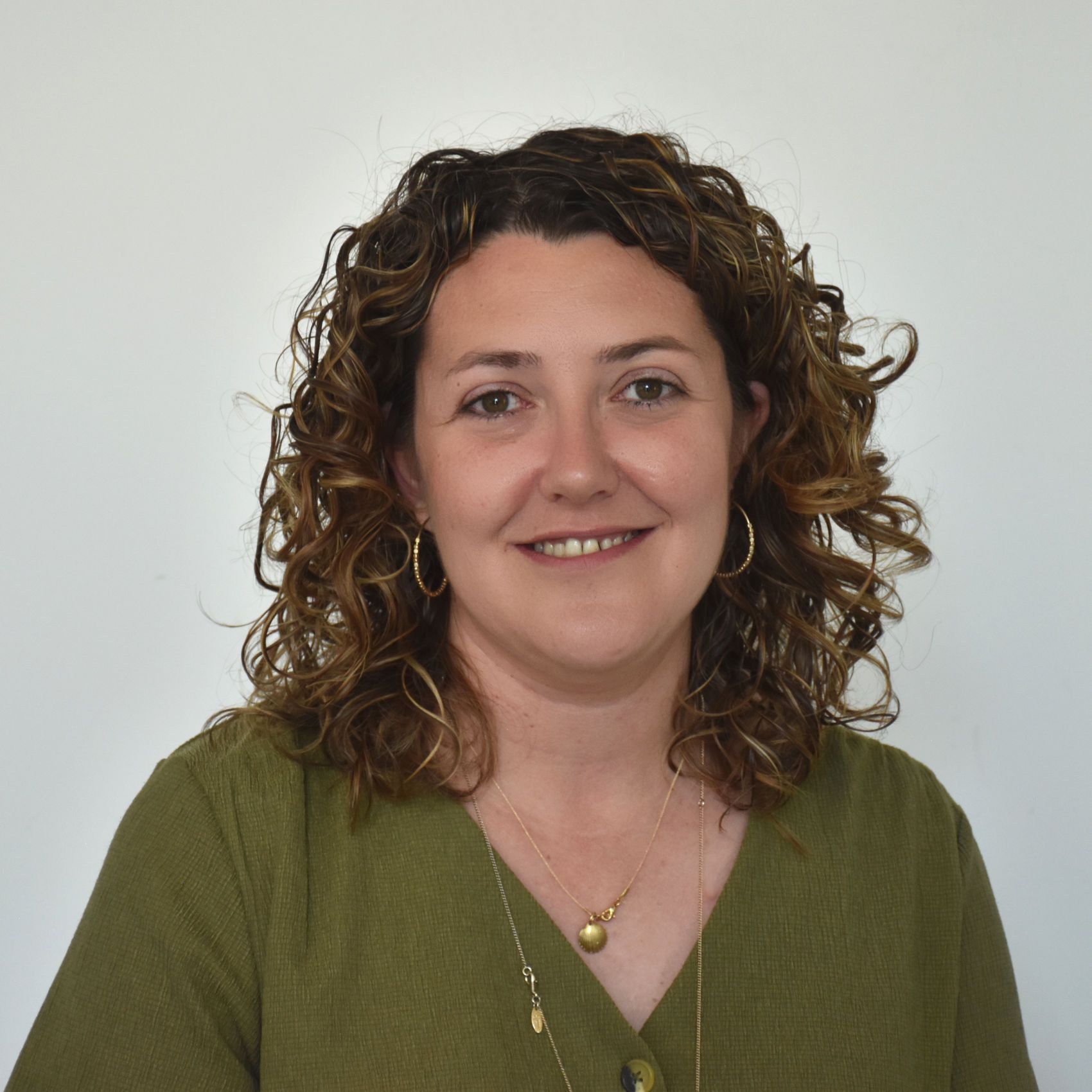 Dr. Marina Villanueva is Associate Professor at the University of Valladolid (Uva), Spain. She holds a BSc in Agronomic Engineering, a MSc in Food Quality, Development and Innovation and a PhD in Agri-Food and Biosystems Science and Engineering from the College of Agricultural and Forestry Engineering, UVa, Spain. She was awarded a post-doctoral fellowship and conducted research for two years in Poland at the Wroclaw University of Economics and Business (Poland) with Prof. Harasym. Her research activity has produced 39 international publications in impact journals, 2 book chapter, more than 80 communications to international and national congresses and 2 patents. In the broad area of Food Science and Technology, she has been involved in 4 research projects funded by International, National and Regional Institutions (one as PI) and 27 agri-food industrial collaboration projects. Research interests: design and development of gluten-free systems, nutritional and functional foods, new clean-friendly technologies for modifying the main components of flours, and the valorisation of agri-food residues in the context of environmental management and circular economy.
Dr. Marina Villanueva is Associate Professor at the University of Valladolid (Uva), Spain. She holds a BSc in Agronomic Engineering, a MSc in Food Quality, Development and Innovation and a PhD in Agri-Food and Biosystems Science and Engineering from the College of Agricultural and Forestry Engineering, UVa, Spain. She was awarded a post-doctoral fellowship and conducted research for two years in Poland at the Wroclaw University of Economics and Business (Poland) with Prof. Harasym. Her research activity has produced 39 international publications in impact journals, 2 book chapter, more than 80 communications to international and national congresses and 2 patents. In the broad area of Food Science and Technology, she has been involved in 4 research projects funded by International, National and Regional Institutions (one as PI) and 27 agri-food industrial collaboration projects. Research interests: design and development of gluten-free systems, nutritional and functional foods, new clean-friendly technologies for modifying the main components of flours, and the valorisation of agri-food residues in the context of environmental management and circular economy.
photo: Dr Vilanueva's private material
Dr. Tetiana Lisovska
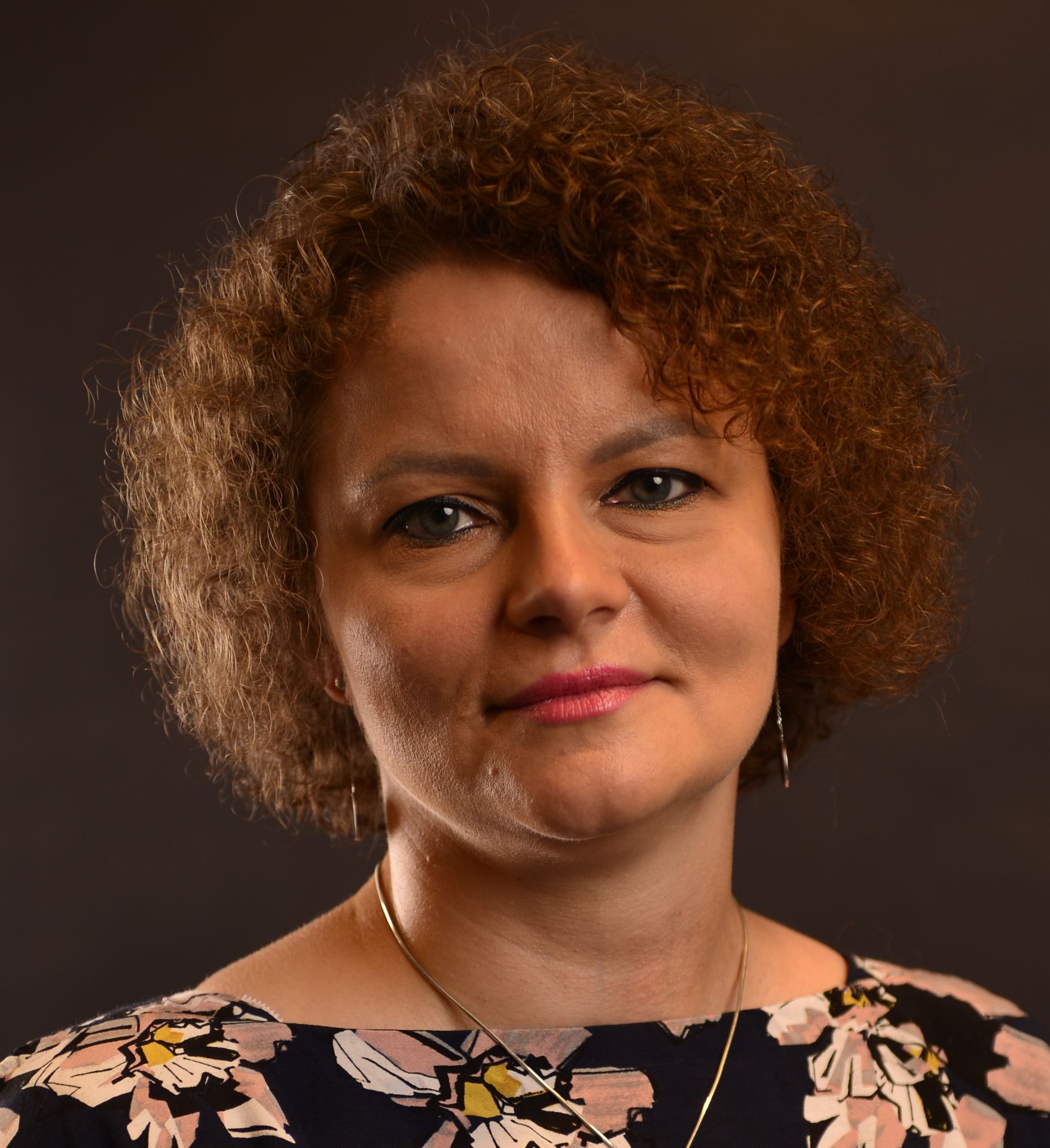
Dr. Tetiana Lisovska graduated from the Ternopil Ivan Puluj National Technical University. She received her doctoral degree from the Kharkiv State University of Food Technology and Trade, in technical sciences in Food Products Technology. She has held a research internship at the Research and Transfer Centre Sustainable Development and Climate Change Management of the Hamburg University of Applied Sciences, Hamburg, Germany. Principal investigator and co-investigator of 3 research projects (funded by NCN and foreign funds). Research interests: use of non-traditional grain raw materials, innovative methods of modification of physical and chemical properties of grain raw materials, extrusion, microwave modification, food security, sustainable supply chains, and zero waste approach.
photo: Dr Lisovska's private material
Prof. dr hab. Joanna Harasym
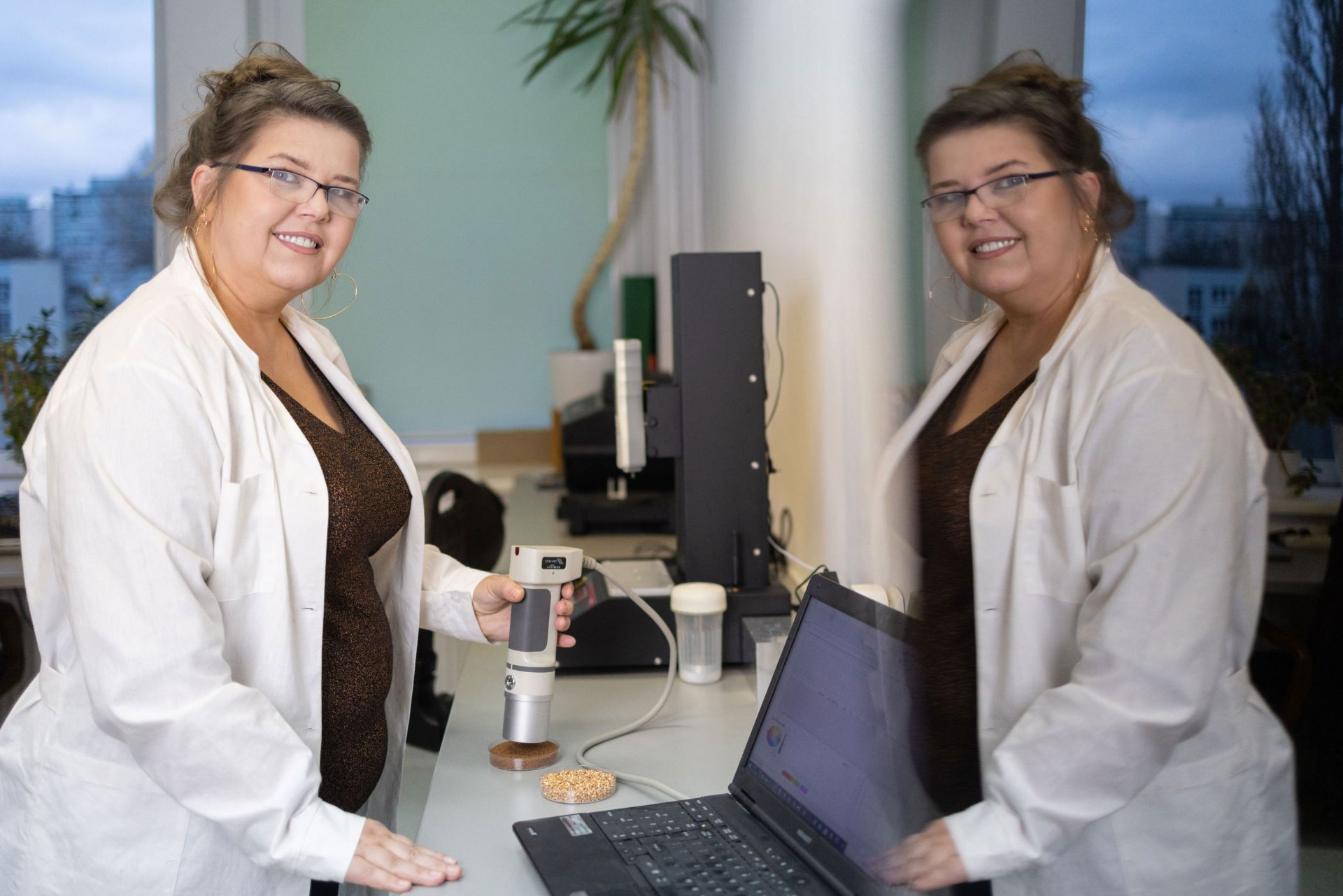 Prof. Joanna Harasym graduated of the Wrocław University of Technology. She received her doctoral and postdoctoral degrees from the Wrocław University of Life Sciences and the Warsaw University of Life Sciences, respectively, in the field of agricultural sciences in the discipline of food and nutrition technology. A fellow of the Marie Sklodowska-Curie Individual Action Fellowship (IF-MSCA), she conducted research for two years in Spain at the University of Valladolid. She has held research internships at universities in Greece, Italy, Spain, Portugal and Singapore. Principal investigator and co-researcher of more than 20 research projects funded by NCN, NCBiR, NAWA and foreign funds. Research interests: innovative methods of modifying the physicochemical properties of grain-derived raw materials, extraction, microwave modification, modification by ultrasound, electric and electromagnetic fields.
Prof. Joanna Harasym graduated of the Wrocław University of Technology. She received her doctoral and postdoctoral degrees from the Wrocław University of Life Sciences and the Warsaw University of Life Sciences, respectively, in the field of agricultural sciences in the discipline of food and nutrition technology. A fellow of the Marie Sklodowska-Curie Individual Action Fellowship (IF-MSCA), she conducted research for two years in Spain at the University of Valladolid. She has held research internships at universities in Greece, Italy, Spain, Portugal and Singapore. Principal investigator and co-researcher of more than 20 research projects funded by NCN, NCBiR, NAWA and foreign funds. Research interests: innovative methods of modifying the physicochemical properties of grain-derived raw materials, extraction, microwave modification, modification by ultrasound, electric and electromagnetic fields.
photo: Michał Łepecki

